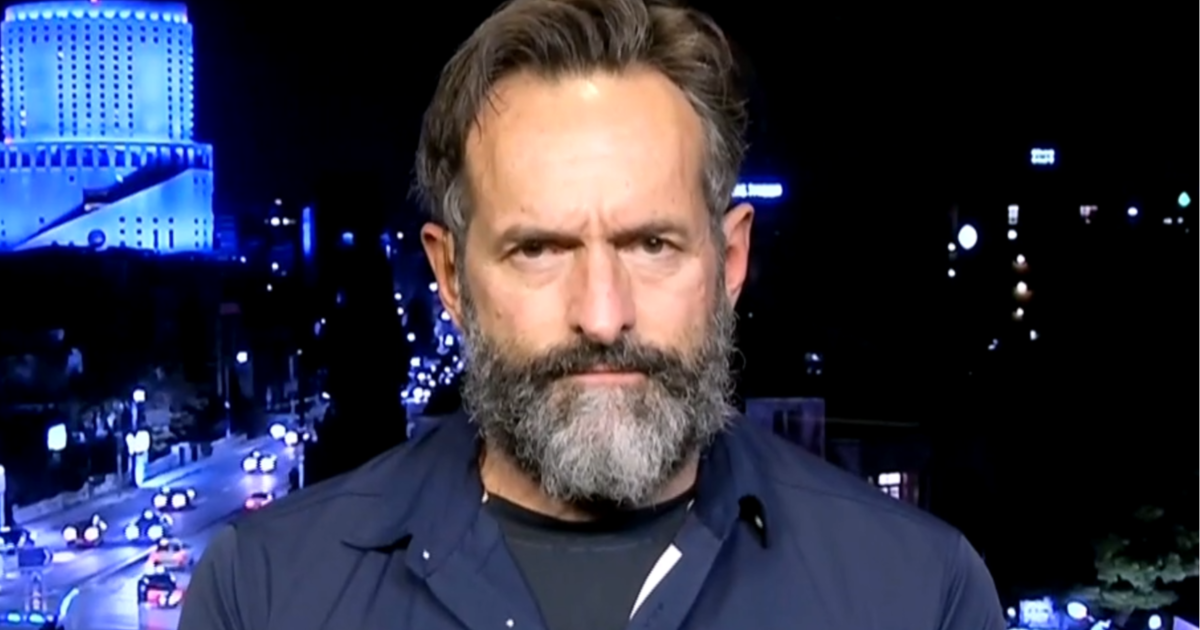Exclusive Interview: Unraveling the Mystery of Austin Tice's Disappearance in Syria
In a recent "Face the Nation" interview, Roger Carstens, the Special Presidential Envoy for Hostage Affairs, shared gripping details about his perilous journey to Damascus in search of journalist Austin Tice, missing for over a decade. This exclusive report reveals shocking revelations about the Assad regime's secret prison system and the ongoing quest to bring Austin home. Prepare to be amazed by the scale of the operation and the challenges faced in this high-stakes mission.
The Astonishing Number of Secret Prisons in Syria
Carstens revealed the staggering number of secret prisons operated by the Assad regime, estimating over 40 such facilities. Imagine the chilling implication: a vast network of hidden dungeons designed to keep dissidents and prisoners like Austin Tice concealed from the world. This unexpected revelation underscores the monumental challenge of the search for the American journalist. The search itself involved the use of various techniques such as networking with various individuals and groups such as the interim authorities and NGO members.
A Shocking Discovery: Uncovering Assad's Hidden Prisons
Carstens expressed a disturbing surprise when finding out about the sheer number of secret prisons used to house prisoners by the Assad regime. Instead of only one secret prison to house the regime’s enemies, Carstens mentions the astonishing number of over 40 secret prisons operated by Bashar al-Assad's regime. He further describes how the sheer scale of Assad’s secret prison system is something disturbing to discover.
The Ongoing Search for Austin Tice
Despite the daunting task, Carstens maintains unwavering hope that Austin Tice is still alive, emphasizing the U.S. government's commitment to the mission. The ongoing collaboration with interim authorities, allies and even members of the media showcases a commitment to exhaustive efforts in finding Mr. Tice.
Unlikely Allies in the Search for Austin Tice: Collaborating with HTS
The quest for Austin Tice has led to surprising collaborations. Carstens described productive meetings with members of the HTS, a group designated as terrorists under U.S. law, highlighting their surprising cooperation in searching potential locations that could hold Mr. Tice. He described the HTS head, Ahmed al-Sharaa, as very pragmatic during their search efforts.
A Joint Operation: Collaboration Against Terrorists
A critical point of the interview was the surprise announcement that a joint search operation was conducted today on one of the many secret prison facilities within Syria by the interim authorities and Mr. Carstens. This highlighted one example of a fruitful search effort.
Navigating Complex Geopolitics
The interview underscores the extreme diplomatic tightrope walked by Carstens and his team, showcasing the complexity of navigating the shifting landscape in the aftermath of the Assad regime. The search efforts demonstrate that alliances and collaborations can still take place between organizations even when it would seem unlikely, given the current geo-political atmosphere in Syria. The search efforts also demonstrate the tenacity and dedication on the parts of US officials to keep searching even under tough circumstances and situations.
Examining Evidence and Pursuing the Truth: Documents and Joint Searches
Carstens revealed that the search has included examination of documents and evidence, the details of which are largely redacted due to sensitivity, suggesting a more thorough investigation than simply physically searching for locations. Carstens’s comments, therefore, provide critical information about ongoing investigative efforts. Moreover, the search for evidence included collaboration and the utilization of the skills and talents of Federal Bureau of Investigation (FBI) experts, highlighting the comprehensive effort put forth to investigate the Austin Tice disappearance case.
Detailed Records and Further Investigations
Further searches yielded file folders holding useful information regarding the prison locations and its prisoners. A careful evaluation and translation of these recovered documents are to be conducted by FBI experts for better review. The documents may contain further information such as fingerprints and traces of DNA which will also contribute to the investigations.
The Role of JSOC
While not disclosing specific details due to security and operational reasons, Carstens acknowledges the support from FBI members and law enforcement community which helped in searching and reviewing discovered evidence from these facilities.
Hope Remains for Austin Tice and Dr. Majd Kamalmaz: Perseverance in the Search
While evidence suggests Dr. Majd Kamalmaz’s death while in captivity, the Carstens and the United States government maintains hope for his safe return, emphasizing a steadfast pursuit of answers, a testament to commitment to finding all American prisoners of war. It also highlights that as long as conclusive evidence of a particular situation is not obtained, hope for a different result will remain in situations.
Ongoing Efforts and Unyielding Hope
Despite difficult circumstances and lack of information, Carstens mentions a willingness to continually pursue Mr. Tice and Majd’s cases for information and even an eventual return for them. The efforts showcase the strong effort put forth by Carstens’ team and US government to return any American who is missing. The statement itself also shows support and compassion for the families involved.
Take Away Points:
- The search for Austin Tice continues with a renewed urgency in the aftermath of discoveries about the Assad regime’s hidden prisons.
- International collaboration, even with unlikely allies, is essential in navigating the complexities of the Syrian conflict.
- Despite setbacks and lack of conclusive information, hope remains for the safe return of all missing Americans.
- The case demonstrates the unwavering efforts and commitments on behalf of the U.S. government, along with the collaboration and use of experts to locate and ensure the return of Americans detained or held in hostage situations around the world.









